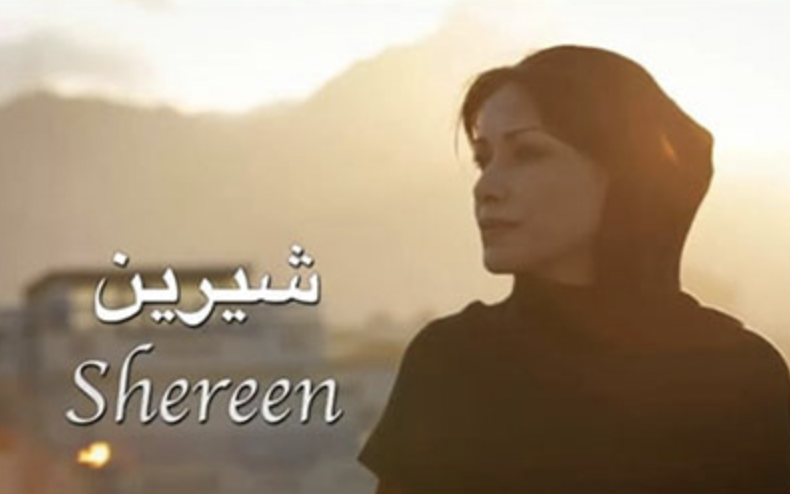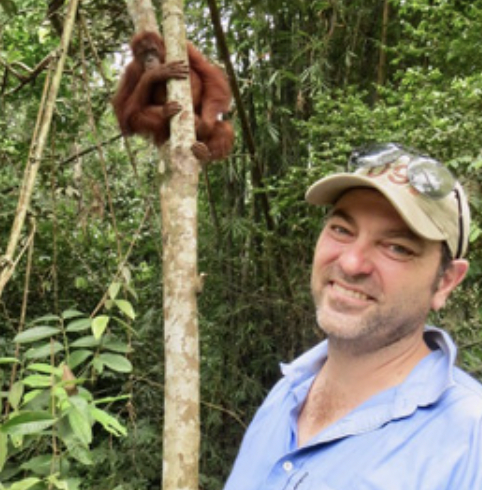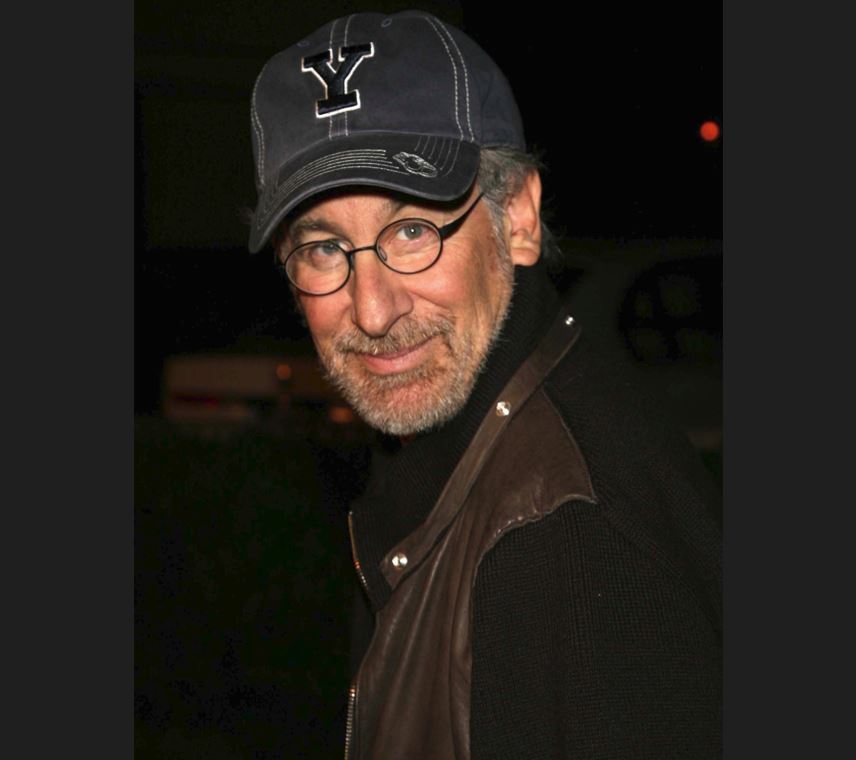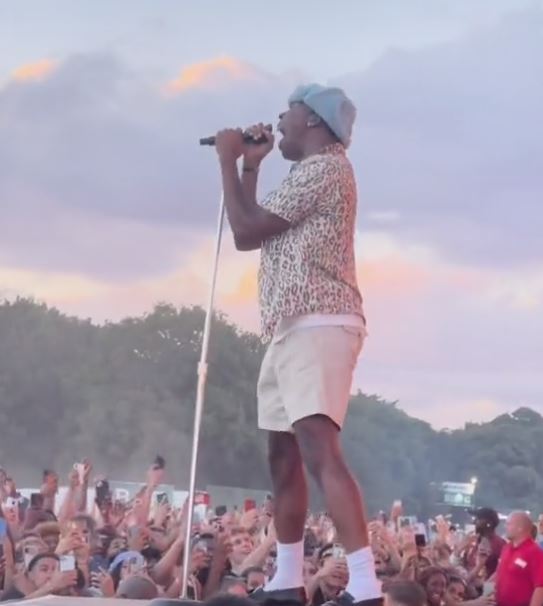As America began its final withdrawal from Afghanistan and the Taliban took control a year ago today on August 14, 2021; cinemas closed and the many film-makers and actors who’ve been part of Afghanistan’s burgeoning film industry went into hiding fearing for their lives.
Their fear was shared by group of film-makers who had lived and worked in Kabul. Aussie producer, Max Walker, was among those who went to work to help fellow film-maker’s and their families get to safety. One year on, I’m joined here today by Max, who is the director and screenwriter of the film Shereen.
Thanks to the power of technology, he joined me from the Northern Territory, Australia, while I was in Paris. You can watch our interview below:

Robyn: Let’s start with the film. When I met you, it was at a screening of Shereen at the Orpheum cinema in Sydney earlier this year. I remember you spoke at the end of it, and it was very powerful; you talked about how when you left Afghanistan, it was felt like you were leaving your mates in Gallipoli to fend for themselves.
Max: I don’t know another way to describe it. What we went through to make that film and the series… Shereen was the big one for us. It is about a single mother, the family court, women’s rights, freedom of expression. That was a big ground breaker and huge risks had to be taken, to get it finished, the challenges that we faced merely to get it in the can, as they say, were immense. The fact that people enjoyed it was good, it was such a lovely surprise because I’m just pleased I got a film made in Kabul, let alone actually a good one. When you go through that, you build bonds that are very hard to describe, and that was through language barriers, everything like that. Through all of that, I have some friends there that mean the world to me because of what we went through; we made something really special.
“When Kabul fell, I was up day and night trying to get my friends out of there, I genuinely feel that I left them on the slopes of Gallipoli, they are my brothers and sisters in arms.”
Film-maker Max Walker on the fall of Kabul
When Kabul fell, I was up day and night trying to get my friends out of there, I genuinely feel that I left them on the slopes of Gallipoli, they are my brothers and sisters in arms.
Robyn: Their lives are at risk. You said, at the time that they’re pretending not to be film-makers to protect themselves, the ones that didn’t manage to escape. Some did manage to flee though, didn’t they?
Max: There are a few of my colleagues and friends who are now living in America, Europe, or Australia but most of them are still in Kabul. We’re thrilled that some of our crew are safe and doing their best to start another life but many are still not just in hiding, they are unemployed as well. And for the women I worked with there, you can’t be an actress anymore in Afghanistan.
Robyn: Do you think people have got any idea what’s really going on there? Because back it was very much the focus, and since then Ukraine has happened, and the attention moves away and yet these people are still living through living hell.
Max: The Taliban knew that the world’s eyes would soon be diverted by one crisis or another. Slowly but surely rights have been eroded, women can’t work, can’t go out without a man anymore. All the things that we worked so hard to try to change over the last 20 years. At times it just feels like, my god what happened? People forget that yes, they’re in hiding but they’re struggling to pay their bills. The whole industry was gone overnight. There are some places that the Taliban have allowed to keep broadcasting, but it’s now simply what the Taliban allow.
Robyn: How can people help, what can they do? You set up a fund?
Max: Australians are really heavily involved in Afghanistan’s media revolution. Many Australian film makers went and helped young Afghan film makers. A group of my expat colleagues got a fund where we’re raising money to help them whilst they’re in hiding, sending them money to be able to pay bills. If you go onto a website called chuffed.org, and search for Afghan film-maker’s rescue fund that will take you to our page.
Robyn: I encourage everyone to do that. Tell us about the inspiration behind the film and TV series Shereen. You had a standing ovation at the cinema, you seemed to be surprised about it! It was brilliant, I felt like I was there with those women, and it felt so real.
Max: Thank you. It was really lovely to watch it there at that particular cinema, because it was half filled by Afghans. It was the first time I’ve seen an Afghan audience watch it live. What inspired this was I was working for a big Afghan broadcaster in Kabul, working with their young film-makers. They wanted to have a show that appealed to Afghanistan’s women, they recognise there was a growing power within the community that women had. At the same time, I had friends in Afghanistan who had introduced me to a single mother who was going through this awful time trying to get out of a toxic marriage, and a very powerful man was involved. But then I met other single mothers and kept hearing these stories, and then learned there wasn’t even really a word for single mother in Dari or Pashto, almost like they didn’t exist. So I thought how about we do something crazy? How about we have a show with a single mother as the lead character, and how about that single mother has a job in the family court? The family caught anywhere is kind of crazy, but the family court in Kabul it is off the chart. This is such rich material for great drama and that’s where it all started. I wrote the script and the rest is history. I was always going to make the first film like a pilot, and after that was handing it off. I said to the local film-makers, ‘This is not my series, this is yours’. Then it was like, ‘ok we’ve got something special here.’ I stepped away and they took it over and it ended up being the amazing hit series it became. I’m so proud of them.
Robyn: Also, the dramatic production is an excellent way people can learn about what’s really going on in Afghanistan. It sends such powerful messages, and hopefully people will get a greater understanding of what it is like for single mothers and women going through those family courts which are so seemingly unjust.
Max: Without giving the story away, this was a story that was set in 2014/2015, so it wasn’t as if it was under Taliban control. Even then it is incredibly difficult for women, even in the centre of Kabul, the oppression and discrimination.
Robyn: How do people get to watch the film now?
Max: There’s a great service, fan-force.com – you can check it out there.
Robyn: Great! Since you came back to Australia, you’ve been quite busy with a new documentary now. Can you share with us what you’re working on now?

From The Aboriginal Man On The $2 Coin, Olive Pink To The Afghanistan Heroin Trade – Max Walker’s Latest Projects
Max: I’ve been doing some stuff with the guys who made the Bush Mechanics, and they’ve got a couple of fantastic projects, including a little biography about the guy on the Australian $2 coin. No one knows the story, but he is the one on the $2 coin that everybody is seeing. His name is Gwoja Jungarrayi (‘One Pound Jimmy’ was his white fella name). Gwoja was also the first Aboriginal person to be featured on an Australian postage stamp.

There’s another great yarn out there that I was doing some work on. It’s about this amazing woman called Olive Pink who lived alongside the Walpiri people in the Tanami Desert.
This little petite, very feisty, middle-aged woman in 1930 who went and lived with the Warlpiri people who were one of the last mobs in Australia’s to have white contact. She was an anthropologist and argued for things like a secular sanctuary, and then no missionaries, no miners but everyone thought she was crazy. When you read her letters, it’s amazing. I also very much wanted to tell it from the Warlpiri point of view and unravel what it must have looked like to them to see this petite, feisty, white middle-aged woman come and set up camp in the middle of their land.

Robyn: Your next project is on the opium trade out of Afghanistan?
Max: We’ve just got the green light on a new podcast series about the Afghan opium trade, which I can’t begin to tell you just how mind-blowing that story is. Ninety per cent of the world’s heroin now comes out of Afghanistan, and that basically all happened under our watch. One of the major issues is that it wasn’t just that the Taliban who were running a major drug cartel. There were plenty of our allies doing the same thing. The American, British or, Australian investigators who are trying to bring down this drug trade couldn’t really touch them because that drug dealer might have been on the CIA’s payroll, and they were helping us in the War on Terror, so we very conveniently didn’t worry about the war on drugs, until it got inconvenient and that particular ally of ours who might have been a very powerful man in government happened to be running a little drug empire on the side. You can image what an ordinary Afghan thought about that? I remember one of them telling me one day, you got rid of the religious extremists, you got rid of the Taliban and you just replaced them with a whole lot of people who are no better.
This has been a big project for a long time and trying to tell the story of this comes with great frustration. I think people in the world are ready to hear these stories.
Robyn: Replacing one monster with another monster, given what happened.
Max: No one knows this story, but the whole Afghanistan campaign was a like that. There was a time when I thought it was a bit of the Emperor’s New Clothes. Everyone kept saying everything’s going fine here, because they kept wanting money to come in to pay their way. Meanwhile things are going completely pear shaped, and we’re being duped. It wasn’t as if this was a secret, many people have written papers about it. In a way, no one just looked.
Robyn: Journalists, storytellers, film-makers like yourself are actually sharing those stories and exposing what’s really been going on. How has technology played a part in all of this? How has it made a difference to film-makers like yourself, and what technologies do you use?
Max: For example, with Shereen, it was shot on a 5D camera. You saw the fantastic images, that’s just a decent stills camera that now acts as a video camera.

Robyn: I remember Steven Spielberg saying he can see the future where films are made on mobile phones, and we recently shared a story on how he recently filmed a music video on his iPhone.






